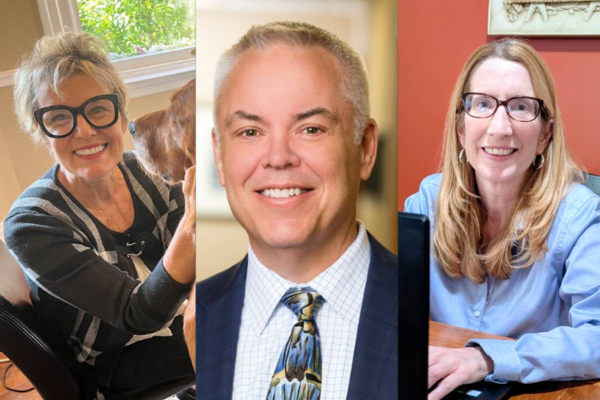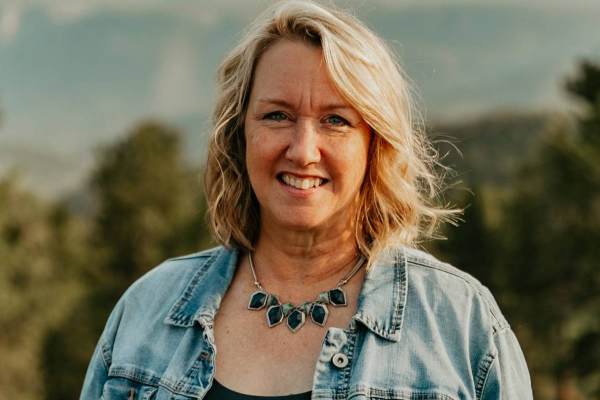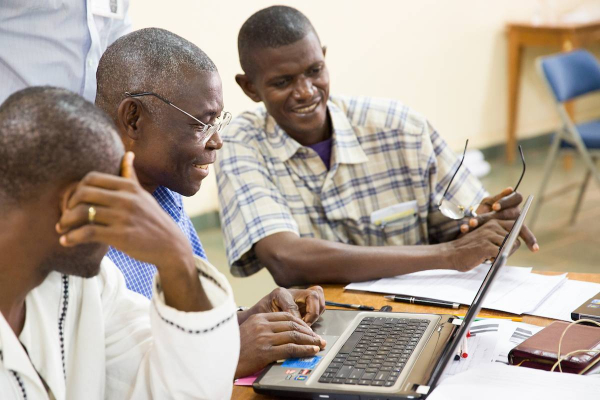What Your Missionary Friends Are Most Grateful For

“I could never do what you do,” a woman once told me, her eyes wide with kind sincerity. My husband and I had just spoken about our work with Wycliffe at her church, and I could see she was making a mental list of everything that would make it hard for her to be a missionary.
“Well, I can’t do what I do either,” I replied honestly, making my own mental list of areas I often struggle and fail, like losing my patience, lacking compassion, battling anxiety and running out of energy.
I wasn’t suffering from a lack of self-confidence or suddenly questioning my commitment to full-time missions; I simply wanted this dear woman to know that missionaries don’t belong on pedestals. God doesn’t call everyone to become career missionaries, but there’s nothing special about those he does call. We’re just regular, imperfect people who live and work in a context that may be different than a typical American’s experience. Most of the time I feel a little ill-equipped to be a missionary — and I’m glad I do! All of my struggles bring deeper humility and greater reliance on God.
STRENGTH IN WEAKNESS
Like me, your missionary friends probably have a keen awareness of the deficiencies in their own strengths, abilities and resources, but they’re also profoundly thankful for the gaps. They know these gaps are opportunities to see God work unobscured by a misplaced sense of personal achievement. Even Paul, arguably the most influential missionary in church history, learned this truth as he battled a stubborn area of personal weakness: “Three different times I begged the Lord to take it away. Each time he said, ‘My grace is all you need. My power works best in weakness.’ So now I am glad to boast about my weaknesses, so that the power of Christ can work through me” (2 Corinthians 12:89, NLT).
GOD’S WORK
Making God’s Word available to every person in a language and format they clearly understand is a monumental task, much too large to be accomplished by people alone. We don’t have everything it takes, because we’re not meant to. This complex effort is ultimately God’s work, and his perspective is much larger than ours.
While my friend Cathy and her family were preparing for their overseas assignment, they discovered that the specialized educational assistance their daughter needed wasn’t available where they were headed.
“Because we still felt called [overseas], we went without knowing how her educational needs would be met,” Cathy explained. “After arriving on the field, I learned that the education I needed to be able to help her was available in a nearby country. Within a few months, thanks to the generosity of some friends, I was on a plane to receive that training. When I returned, I was able to not only help my own daughter but also work within the community, offering services to other students in need of it.”
Cathy and her family trusted God with their need and he met it in a way that not only equipped their family to continue serving Bible translation teams, but also enabled many other missionary families to continue their work as well.
My family and I also saw God’s kindness in the midst of our deficits while we were serving overseas. When we arrived in Papua New Guinea, we didn’t realize that the expectations we had of ourselves were unrealistic and even prideful. We thought we could juggle our ministry, relationships and home life without much help, but we began to struggle almost immediately with the demands of daily life in our new community.
As we admitted our need for help, people came alongside us, including a local single mom who needed work. We hired her to help me stay on top of laundry and keep our house free of quick-growing tropical mold, but she also patiently taught us language skills, quietly influenced our ministry and encouraged us through her faith and perspective. A relationship that began because of a gap in my own abilities grew into a humbling, precious friendship that has continued long-distance.
Cathy’s family and mine both learned that our limitations and needs don’t prevent God from completing his work in our own lives or the world; in fact, he often works through our weakness to accomplish more than we could have imagined.
GRATEFUL FOR THE GAPS
When your missionary friends feel overwhelmed or unqualified, it’s an invitation to see God’s faithfulness through his presence and his people. When they’re lonely or homesick, he offers greater intimacy with himself and brings new relationships and rhythms. When your friends become weary or sick, God opens the door for new workers to step in and shoulder the load while they recover. When they struggle to understand their host culture or language, he gives them a chance to grow as humble learners. When times of stress reveal sinful or unhealthy patterns, they can experience the depth of God’s grace, forgiveness and healing. And when they need encouragement, financial partnership and to be lifted up in prayer, God uses you to fill that gap!
So the next time you’re feeling overwhelmed or unqualified to face areas in your own life, look for how God is filling the holes left by your lack of strength, abilities and resources. You may become most grateful for the gaps as well!
Need some practical tips for how to remind a missionary they’re not alone? Check out five meaningful ways to encourage your missionary!






